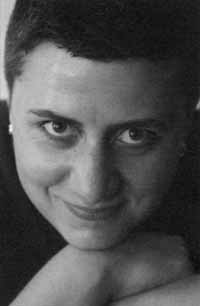Late Friday, the National Book Critics Circle demonstrated its commitment to accuracy by reporting a rumor that The Washington Post Book World was closing up shop. Instead of picking up the phone or talking directly with the appropriate people at the Washington Post or committing any elementary act of journalism, Eric Banks saw fit to create a wave of panic through the online world by suggesting that “a reliable source” was reporting that Marcus Brauchli was recommending to the board that Book World be eliminated. The unconfirmed rumor was likewise disseminated by Scott McLemee, who claimed that “a prominent young American historian” had told him the same thing.
By the way, a dancing leprechaun has been tapping me on my shoulder all afternoon about this. I know he doesn’t work at the Post, but trust me, he’s right about all this, even if he still can’t find his Lucky Charms.
All this, of course, was erroneous. Because nothing has been announced and nothing has been confirmed directly with the appropriate people. And Brauchli was then forced to email Jane Ciabattari to set the record straight. He informed Ciabattari, “We are absolutely committed to book reviews and coverage of literature, publishing and ideas in The Post. Our readership has a huge interest in these areas.”
And instead of Ciabattari, McLemee, and Banks offering an apology for reporting a false rumor, or even putting up a retraction so that readers would know that the news was phony, Ciabattari merely annotated her post with a doubting “Fingers crossed.” When, in fact, it has not been established by anyone that The Washington Post Book World will be closing up shop.
For what it’s worth, I have contacted individuals at the Washington Post in an effort to obtain correct information about what is going on. Rather than dealing with third-hand information or playing a game of telephone, I think it’s important for all “journalists” to stick with established facts. Should I learn anything hard and specific, I will certainly report it here. It’s worth pointing out that what Brauchli may have in mind is similar to what happened with the Los Angeles Times: folding the current material into the daily sections. But since I haven’t heard anything from anyone, all we have right now is speculation. I invite Mr. Brauchli to contact me directly, in an effort to confirm any short-term or long-term plans for what he has in store for his newspaper.
[UPDATE: Politico’s Michael Calderone is claiming that “[h]igh-level discussions about ending Book World have indeed taken place, according to a Post source with knowledge of the talks.”]
[UPDATE 2: Sources within The Washington Post indicate that some reorganization is now in effect and that all inquiries on this subject need to be directed to Marcus Brauchli.]


 Correspondent: You quibble with the term “diagnosis.” You write, “There are no diagnoses in psychiatry. Only umbrella terms for observed patterns of complaint, groupings of symptoms given names, and oversimplified, and assigned what are probably erroneous causes because these erroneous causes can be medicated. And then both the drug and the supposed disease are made legitimate, and thus the profession as well as the patient legitimized, too, by those magical words going hand in hand to the insurance company ‘Diagnosis’ and ‘It’s not your fault.’” But if there are no diagnoses in psychiatry, well, where is the starting point? I mean, obviously, you have to start somewhere and identify a particular problem — even on a simplistic level — in order to help another person. So what of this?
Correspondent: You quibble with the term “diagnosis.” You write, “There are no diagnoses in psychiatry. Only umbrella terms for observed patterns of complaint, groupings of symptoms given names, and oversimplified, and assigned what are probably erroneous causes because these erroneous causes can be medicated. And then both the drug and the supposed disease are made legitimate, and thus the profession as well as the patient legitimized, too, by those magical words going hand in hand to the insurance company ‘Diagnosis’ and ‘It’s not your fault.’” But if there are no diagnoses in psychiatry, well, where is the starting point? I mean, obviously, you have to start somewhere and identify a particular problem — even on a simplistic level — in order to help another person. So what of this?